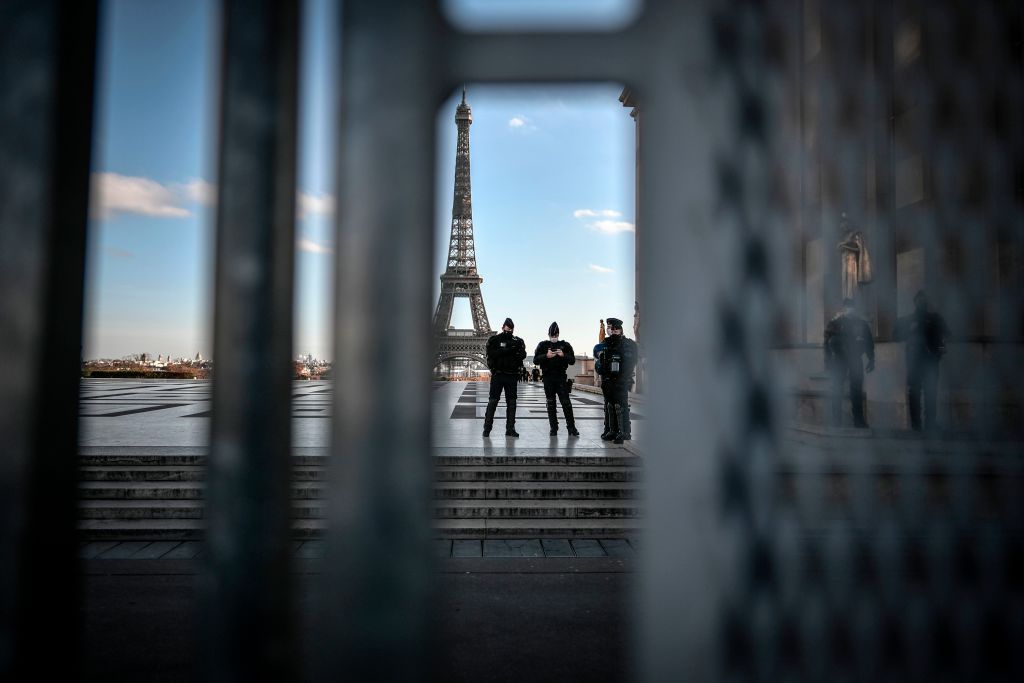Surfing Telegram channels is rarely a pleasant experience. One is met with an infinite splurge of Videodrome-esque gore: Russian and Ukrainian soldiers’ final moments as drones drop explosives on them; Mexican cartel beheadings; glimpses of the unfiltered horrors in Gaza. While it remains legal, the partly encrypted communication network truly is the digital Wild West.
Yet over the weekend the app’s founder, Russian billionaire Pavel Durov, was arrested after he flew into Paris on his private jet for allegedly failing to curb criminal activity on the platform.
Durov is an ardent supporter of free speech. He adopts a laissez-faire approach to moderation on his platform and denies requests by police and government authorities to hand over user data. In 2014, he left Russia for Dubai because he refused to disseminate Russian propaganda on his platform. While Telegram is often heralded as an encrypted service, end-to-end encryption must be turned on manually and doesn’t work in group chats of more than two people.
It is no secret that Telegram hosts a number of illicit activities — typically drug trafficking and terrorist recruitment. The app has also failed to deal with a growing child sexual abuse issue, to which citing a policy of “free speech” is obviously not a valid response for inaction. French police have also charged Durov with failing to communicate with authorities about illicit activities, and with complicity in some of these crimes.
However, more than many of its competitors, Telegram is also a valuable tool for news and open-source intelligence (Osint) research, particularly in times of war. What’s more, people living under authoritarian regimes use it for safe communication. Telegram has nearly a billion users — the vast majority are undoubtedly not using it for illicit means.
But it is unsurprising that Durov’s arrest should happen in France. For years the French authorities have been finding EncroChat devices at drug busts. EncroChat was an encrypted phone network with over 60,000 users often used by drug traffickers to coordinate and execute their illicit endeavours across Europe. In 2020, French authorities found the servers and hacked into them, collecting millions of messages from the criminal underworld. The hack led to the arrest of thousands of criminals globally, including over 3,000 in the UK.
As with the Durov case, French authorities have sought to hold the head of EncroChat to account, extraditing Paul Krusky from the Dominican Republic in 2022 and claiming he knowingly sold the encrypted devices to criminals. These same authorities then came after the world’s largest encrypted messaging service, Sky ECC, which was also used extensively by drug dealers across Europe.
These government hacks blur the boundaries of what is acceptable surveillance in the digital age. In the case of organised criminals, targeted surveillance seems morally uncomplicated. But these encrypted networks are also used by law-abiding civilians, many of whom are fearful of surveillance on less secure networks. It’s not that they have anything to hide, but instead that they are unsettled by the principle of having no privacy. The hacking of EncroChat and Sky ECC meant that legal users, along with criminals, had their conversations monitored and their messages recorded.
French lawyer Guillaume Martine, who has been challenging the legality of the EncroChat hack, claimed on Sunday that Durov’s arrest is a “spectacular confirmation of a shift made in recent years by the French justice system concerning encrypted messaging: the idea that these messaging services constitute, in essence, the tool of crime”. The change in the past couple of years with Durov’s arrest and Krusky’s extradition seems to be holding owners directly accountable for user activity on their platforms. The eccentric Durov’s commitment to unfettered freedom of expression puts him at odds with the French authorities, who appear to prioritise the rule of law over free speech.
Should apps and encrypted messaging services be held responsible for the illicit activities that users carry out on their networks? Crime must be dealt with, but Telegram prioritises user privacy and security, which in many cases limits the platform’s ability to monitor and moderate content. Denying any culpability for failing to prevent often horrific activities on your platform in the name of free speech is not sufficient. Then again, striking the balance between safety and freedom is never simple.










Join the discussion
Join like minded readers that support our journalism by becoming a paid subscriber
To join the discussion in the comments, become a paid subscriber.
Join like minded readers that support our journalism, read unlimited articles and enjoy other subscriber-only benefits.
Subscribe